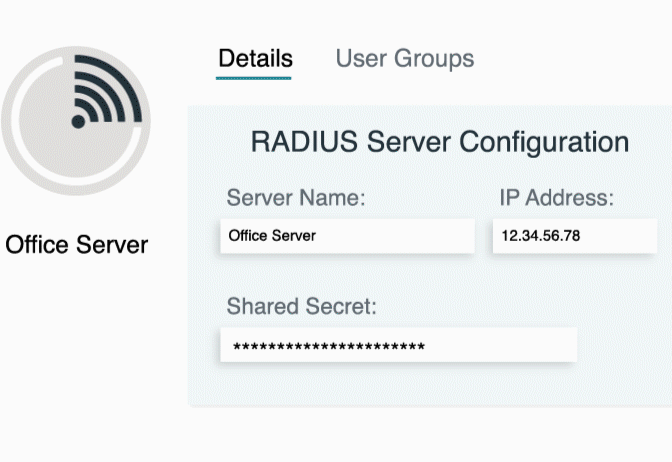When it comes to authorizing network access, very few protocols are more widely used than RADIUS (Remote Authentication Dial In User Service). The RADIUS protocol was originally created for controlling on-prem dial-up internet access and accounting management.
However, long gone are the days of the snaking ethernet cables needed for local area networks (LAN). WiFi has changed the way employees work and, ultimately, how IT manages networks, thus prompting organizations to search for cost-effective and easy-to-manage online RADIUS solutions. Many employees are able to work remotely from anywhere they choose, be it traveling between conference rooms or between countries. As such, controlling network access, while empowering end users to be productive no matter how or where they work, is more critical than ever.
Although WiFi significantly increases end user flexibility and agility, it impacts IT admins’ ability to secure the network. After all, it is difficult to control the extent of a WiFi signal, so keeping potential bad actors out can be difficult as well. Additionally, it sparks questions about leveraging the cloud as a whole. In fact, many organizations have used the shift to WiFi as a springboard to move their networks to the cloud completely. That way, IT admins can transform the organization into a “cafe-style” network, where users can come and go, while infrastructure is hosted from the cloud.
How Does RADIUS Work?
RADIUS is a network authentication protocol that is used to provide secure access to wireless networks by requiring each user to authenticate their identity by leveraging core user credentials. These credentials are stored within an identity provider (IdP), also known as a directory service, which acts as the source of truth for authenticating user identities.
RADIUS servers are typically integrated with that core IdP. As a result, a RADIUS server can authenticate credentials submitted by the user against the IdP and subsequently grant or prevent network access depending on the outcome.
Benefits of RADIUS
The primary benefit of RADIUS authentication is enhanced WiFi security – rather than using a shared SSID and password, each user logs in with their own unique set of secure credentials. This more secure approach to network access is just as user friendly, if not moreso, because each user knows their credentials off the top of their head.
Whereas using the old, shared SSID and password strategy, there is simply no way of knowing that only the correct users have access to a secure network at any time, creating an easy attack surface for bad actors.
Traditional RADIUS Challenges
Of course, implementing RADIUS has certain challenges in and of itself. Traditional RADIUS solutions are on-prem implementations that require heavy investment into on-prem identity management infrastructure. Not only do IT organizations need a dedicated RADIUS server, but they also need an existing identity management infrastructure to integrate with. Then, the challenge becomes integrating the RADIUS server throughout an environment, not to mention ongoing maintenance.
The choice in IdP can impact the end result as well. Active Directory (AD), for example, is basically limited to on-prem networks of Windows-based IT resources. Consequently, IT organizations may require additional solutions to extend RADIUS functionality to non-Windows resources, which doesn’t make sense in modern IT environments that contain a mix of device and resource types.
Advantages of Online RADIUS Servers
Thankfully, everything old is new again in the cloud. Online RADIUS servers are breathing new life into what used to be an aging on-prem implementation. The key advantages of using an online RADIUS server include:
- Enhanced network security via RADIUS authentication.
- Modernized IT infrastructure.
- Hybrid work support.
- Lower total cost of ownership.
- No hassle: server setup and maintenance are done for you.
- No more on-prem hardware necessary.
A Cloud Directory Service with Built-In Online RADIUS Servers
Because RADIUS servers need to connect to an IdP of some kind, the ideal solution is a modern directory platform with built-in RADIUS capabilities. This is what JumpCloud offers – the JumpCloud Directory Platform includes Cloud RADIUS which allows admins to host their RADIUS instances remotely, alleviating the burden of setting up and managing RADIUS on-prem.
Plus, managing RADIUS and its users is often difficult because most other implementations don’t come with a GUI. But, JumpCloud’s RADIUS GUI is easy to use and navigate. Admins can also use JumpCloud to fine tune their RADIUS instances using network segmentation and VLAN tagging to ensure that only authorized users can access critical parts of the network, keeping potential bad actors out.






